When to take Whey Protein for Weight Loss?

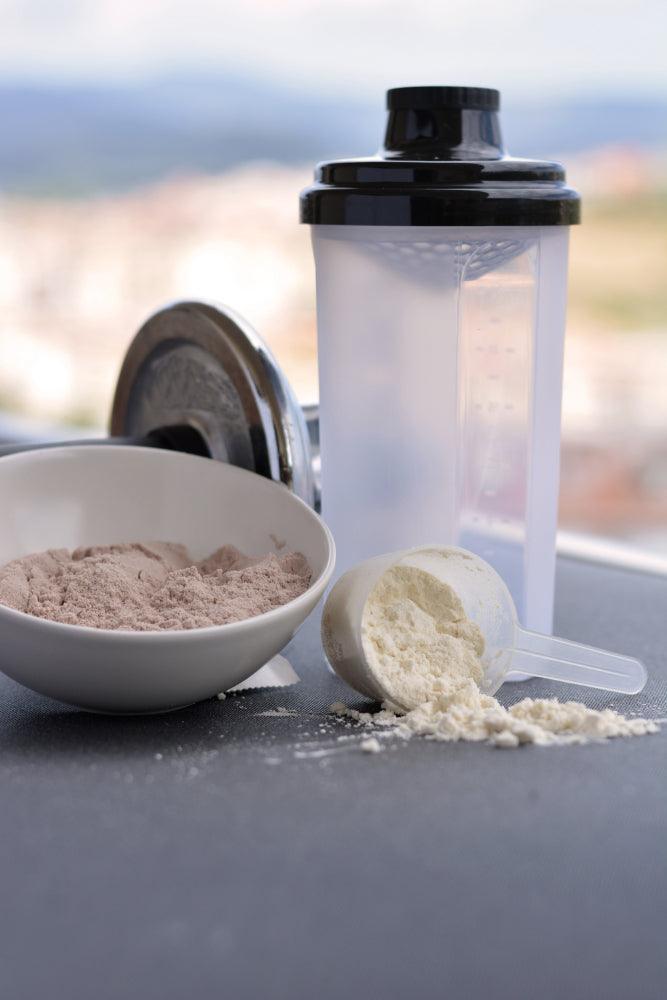
Related products
Whey protein, a by-product of cheese production derived from cow’s milk, is widely used in powdered form and has become a staple in health and fitness, particularly for weight loss. It’s a high-quality protein rich in branched-chain amino acids (BCAAs), essential for muscle repair, recovery, and performance. Dr. Emily Smith, a renowned nutritionist, explains, “Whey protein is not just a supplement—it’s a powerful tool in the weight loss arsenal, offering a host of benefits that align perfectly with the goals of those looking to shed pounds.”
Its growing popularity stems from its ability to promote fullness, preserve lean muscle, and support metabolism, making it a top choice for sustainable fat loss. To maximise these benefits, it should be consumed as part of a balanced, nutrient-rich diet.
According to the Global Wellness Institute, the use of whey powder in weight loss programs is on the rise, with 30% of weight management diets now incorporating it in some form. Understanding the optimal timing and method of intake is key to maximising its benefits. As weight loss specialist Dr. John Davis explains, “The timing of whey protein intake can significantly amplify its weight loss benefits. It’s not just about consuming it; it’s about when and how you do so.”
This article examines the effective integration of protein supplementation, covering the science behind its role in weight management, optimal consumption times, recommended dosages, and practical strategies. The goal is to provide an evidence-based guide that empowers readers to make informed dietary choices and fully leverage the benefits of protein in their weight loss journey.
Each section of the article will reinforce the central theme, creating a cohesive and informative narrative. From physiological effects to psychological impacts, all angles will be explored. Expert insights and statistical data will offer a well-rounded perspective, appealing to both science-minded readers and those seeking practical weight loss advice. The role of protein in weight management is multifaceted, and understanding how to use it effectively can significantly improve outcomes. This article aims to clarify its use in weight loss and empower readers to make informed, confident dietary choices.
Composition of Whey Protein
Whey protein, widely regarded as a valuable tool in weight management, is more than just a supplement. It’s a complete protein derived from whey—the liquid by-product of cheese production—and contains all nine essential amino acids. Dr. Angela Richardson, a leading dietician, explains, “Whey protein is a complete protein with a high biological value, making it especially effective for muscle repair and growth.” Typically composed of 70–80% protein, it also contains small amounts of lactose, minerals, and fat. As a dietary protein, it supports fluid balance and various physiological functions. “Whey stands out for its high leucine content, a branched-chain amino acid key to muscle synthesis,” Dr. Richardson adds. This composition makes it particularly suitable for weight loss by preserving lean muscle while promoting fat reduction.
Comparison to Other Proteins
Whey protein’s efficacy in weight loss and muscle building is often contrasted with other protein types. For instance, casein, also derived from milk, is digested more slowly than whey, providing a steadier release of amino acids. Dr. Mark Thompson, a sports nutritionist, states, “While casein is beneficial for prolonged protein synthesis, its rapid absorption rate makes it ideal for post-workout recovery.” Plant-based proteins, such as pea or rice protein, are alternatives for those with dietary restrictions or preferences, and these are also available as protein powders. However, whey protein powder is often preferred for its complete amino acid profile and superior absorption rate. Dr. Thompson adds, “Whey protein is superior in terms of its complete amino acid profile and faster absorption, which is crucial in weight management strategies.”
The Role of Protein
Protein plays a vital role in weight management, and whey is at the forefront of this process. Its impact on weight loss is multifaceted. Firstly, protein, particularly whey, enhances satiety, which can lead to reduced calorie intake. Dr. Sarah Benson, an expert in obesity management, highlights, “Whey protein has been shown to increase satiety hormones, like cholecystokinin (CCK) and glucagon-like peptide-1 (GLP-1), more effectively than other protein types.” This aspect is crucial for controlling hunger and reducing overall calorie intake. Additionally, whey has a thermogenic effect, meaning its digestion burns more calories compared to fats or carbohydrates. Dr. Benson elaborates, “The high thermic effect of protein can boost metabolic rate, aiding in weight loss.” Furthermore, whey powder helps preserve lean muscle mass during weight loss, which is essential as muscle tissue burns more calories than fat tissue. It is important to consume enough protein to achieve these benefits, as insufficient intake may limit muscle preservation and satiety effects.
Statistics reinforce protein’s role in weight management. A study published in the Journal of the American College of Nutrition found that increasing protein intake to 30% of daily calories led to a significant reduction in body fat, largely due to improved satiety and enhanced fat loss. For optimal results, experts recommend distributing protein intake evenly across meals to support appetite control and preserve lean muscle.
The composition and characteristics of the protein make it a valuable component in weight loss programs. Its comparison with other protein types demonstrates its superior qualities in terms of absorption rate and amino acid profile. The role of protein, especially whey, in weight management cannot be overstated, as it aids in conserving muscle, increasing satiety, and enhancing metabolic rate. Ensuring adequate protein intake is essential to support tissue repair, immune function, and metabolic processes. These properties collectively contribute to its widespread use and efficacy in weight loss strategies, aligning perfectly with the article’s key theme of exploring the optimal use of whey for weight loss.
The Science of Protein

How Protein Affects Satiety and Appetite Regulation
The role of protein in regulating satiety and appetite is a cornerstone in the science of weight loss, with whey playing a pivotal role. Dr. Lisa Hamilton, a renowned endocrinologist, explains, “Protein, particularly whey, influences the release of satiety hormones such as ghrelin and leptin, which play crucial roles in hunger management.” This regulation of appetite hormones is essential in controlling food intake and aiding weight loss efforts. Whey, in particular, has been observed to have a more significant impact on satiety compared to other protein types. A study published in the ‘American Journal of Clinical Nutrition’ found that individuals consuming it experienced a greater sense of fullness and reduced food intake in subsequent meals. This effect is attributed to the rapid absorption and high leucine content in whey, which stimulates satiety signals in the brain. These appetite-suppressing effects of the protein can be especially beneficial for weight control, as they help manage cravings and support a healthy diet.
Additionally, consuming protein has a notable thermic effect, meaning the body burns more calories during digestion, which can help maintain an active metabolic rate and further support weight management goals.
The Impact of Protein
Protein’s impact on metabolism is a vital part of its role in weight loss. Dr. Lisa Hamilton explains, “The thermic effect of protein is higher than that of carbohydrates or fats, meaning the body expends more energy to digest it.” This increased calorie burn can help support a higher metabolic rate.
Whey protein, with its rich amino acid content, is especially effective in maintaining and building muscle mass. This is crucial during weight loss, as Dr. George Brooks, a sports nutrition expert, notes: “Maintaining muscle mass is critical during weight loss, as muscles are metabolically active tissues.” Preserving lean mass helps prevent the drop in metabolic rate that often accompanies calorie restriction. In contrast, inadequate protein intake can lead to muscle loss, reducing the body’s ability to burn calories efficiently, even at rest. Ensuring sufficient protein supports both fat loss and long-term metabolic health.
Review of Relevant Research Studies
Numerous research studies have investigated the role of whey in weight loss. For instance, a study in the ‘Journal of Nutrition’ demonstrated that participants who supplemented their diets with whey lost more body fat and preserved more lean muscle compared to those who didn’t. These findings align with the notion that whey is not only effective in weight loss but also in enhancing body composition. Research also shows that consuming more whey protein can support muscle gain and enhance immune response, with increased intake linked to improved muscle building and a stronger immune system. Another study, published in the ‘International Journal of Obesity’, found that whey protein supplementation led to a significant reduction in body weight and improvement in blood markers associated with cardiovascular health. Whey contains natural ACE inhibitors, which can help lower blood pressure by supporting the body's regulatory system. This suggests that whey protein’s benefits extend beyond weight loss, contributing to overall health improvement.
Should You Take Whey Protein?
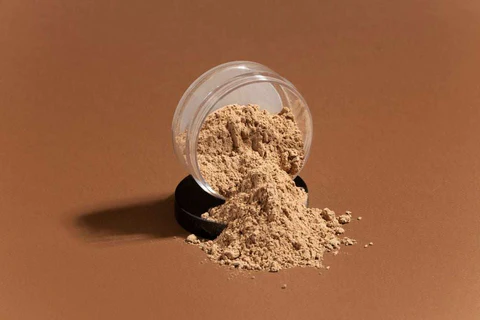
Given the scientific evidence, the question arises: Should you take whey protein when trying to lose weight? The answer, supported by a consensus in the scientific community, is affirmative. Dr. Brooks states, “For those looking to lose weight, whey protein can be a valuable addition to their diet, due to its ability to enhance satiety, boost metabolism, and preserve muscle mass.” Using a whey protein supplement can further support muscle preservation and help meet daily protein needs, especially if your dietary intake is insufficient.
Examining the Effectiveness of Whey Protein
When evaluating whey's effectiveness in weight loss, it's important to consider both physiological and psychological factors. Physiologically, it supports satiety, metabolism, and muscle maintenance, making it a powerful tool for fat loss. Psychologically, it can enhance dietary satisfaction, helping individuals stick to their nutrition plans more consistently. However, responses to protein intake vary; factors such as timing, digestion, and individual health can influence results. Paying attention to how your body responds can help optimise outcomes. Scientific research consistently highlights whey protein’s role in appetite control, metabolic support, and muscle preservation—reinforcing its value in weight management strategies and aligning with this article’s central theme.
Types of Protein
Protein is essential for muscle repair, immune function, and overall health. With rising interest in fitness and nutrition, a variety of supplements are now available to suit different needs. Among them, whey remains one of the most popular and effective options. Derived from cow’s milk, it offers a complete amino acid profile, making it ideal for efficient protein intake. Unlike some alternatives, whey provides all the essential amino acids needed to support muscle recovery, metabolic function, and general well-being. Whether you're an athlete, managing your weight, or maintaining a healthy lifestyle, incorporating high-quality options like whey can help you meet your daily nutritional goals.
Whey vs. Other Protein Supplements
When it comes to protein supplements, not all options are created equal. Whey is frequently compared to other popular choices such as casein protein, soy protein, and pea protein. What sets whey apart is its high biological value, meaning it is efficiently absorbed and utilised by the body. This is largely due to its rich essential amino acid content, which is vital for muscle repair and growth. Whey protein isolate is a particularly pure form, offering a high protein concentration with minimal lactose and fat, making it ideal for those who are lactose intolerant or seeking a leaner supplement. Whey protein concentrate, on the other hand, is a more budget-friendly option that still delivers a robust amino acid profile and supports a high-protein diet. In contrast, casein protein, also derived from milk, digests more slowly, providing a sustained release of amino acids, which can be beneficial for overnight muscle recovery. While plant-based protein supplements like soy or pea protein are suitable for those with dietary restrictions, they may lack one or more essential amino acids and often have a lower protein content per serving. Ultimately, whey protein’s rapid absorption and comprehensive amino acid profile make it a top choice for those seeking effective protein supplementation, whether for muscle building, recovery, or weight management.
Choosing the Right Protein for Your Goals
Selecting the right protein supplement depends on your individual health and wellness goals. If you're aiming to build muscle or support muscle protein synthesis, whey is particularly effective due to its fast absorption and rich amino acid profile. For those focused on weight loss, incorporating it into a high-protein diet can promote satiety, reduce overall calorie intake, and help preserve lean muscle during periods of calorie restriction.
Athletes and those with intense training demands may benefit from whey protein hydrolysate—a pre-digested form that allows for faster absorption and improved muscle recovery. However, supplements should complement a healthy diet, not replace it. Prioritising whole foods and getting protein from diverse sources is key to supporting overall health and performance.
Whether your goal is muscle gain, fat loss, or general wellness, choosing the right type of whey—be it isolate, concentrate, or hydrolysate—can significantly impact muscle function, body composition, and overall long-term health.
Timing for Whey Protein Intake
What is the Best Time to Take?
Determining the best time to take whey for weight loss is key to maximising its effectiveness. Dr. Helen Foster, a nutrition scientist, explains, “The optimal timing for whey protein intake can vary based on individual goals and daily routines.” Still, general guidelines supported by research and expert advice can help inform the best approach.
Consuming whey immediately after exercise is often recommended to take advantage of the anabolic window—a period post-workout when the body is especially receptive to nutrients for muscle repair and growth. Strategic protein intake during this time is effective for promoting muscle growth and enhancing recovery. For best results, experts suggest consuming about 20-30 grams of protein post-workout, as this amount supports muscle repair and aligns with research on how much protein is optimal for these benefits.
Pre-Workout:
Consuming protein before workouts can be beneficial for those aiming to lose weight. It provides an energy boost and helps preserve muscle volume during exercise. Dr. Foster notes, “Taking whey protein about 30 minutes before exercising can prime the body for optimal performance and muscle protection.” Incorporating a higher protein intake before exercise can further support muscle protection and enhance workout performance. This timing ensures that amino acids are available for muscle synthesis and energy production.
Post-Workout:
Post-workout is a key time to consume protein. Dr. Alex Richardson, a sports medicine expert, explains, “After exercising, the body needs protein to repair and rebuild muscles.” Thanks to its rapid absorption, whey is ideal for delivering essential nutrients during this recovery window and making the most of the body’s elevated metabolic rate after exercise.
Morning vs. Evening:
The choice between morning and evening protein intake often depends on personal lifestyle and dietary habits. Dr. Foster explains, “Consuming whey protein in the morning can kickstart metabolism and help curb appetite throughout the day.” On the other hand, evening intake may support overnight muscle recovery and promote satiety, potentially reducing late-night snacking.
Relation to Meals:
The role of protein in relation to meals is another aspect to consider. While it can be a supplement to meals, providing additional protein, some may use it as a meal replacement in the context of weight loss. Dr. Richardson cautions, “If using whey protein as a meal replacement, it’s important to ensure that other nutritional needs are met throughout the day.” To create a more balanced meal replacement shake, consider adding healthy fats, such as nut butter, which can help with satiety and provide essential nutrients. Additionally, choosing ingredients that help keep the shake lower in calories can support weight loss by allowing you to consume fewer calories overall. This approach should be balanced and part of a comprehensive diet plan. The optimal timing for taking whey protein for weight loss varies depending on individual circumstances and goals. Whether it’s pre-workout, post-workout, morning or evening, the key is to align whey protein consumption with personal routines and nutritional needs. The relationship between whey protein and meals also plays a crucial role, with the flexibility to use it either as a supplement or a meal replacement, depending on dietary requirements and weight loss objectives.
Dietary Integration of Whey Protein
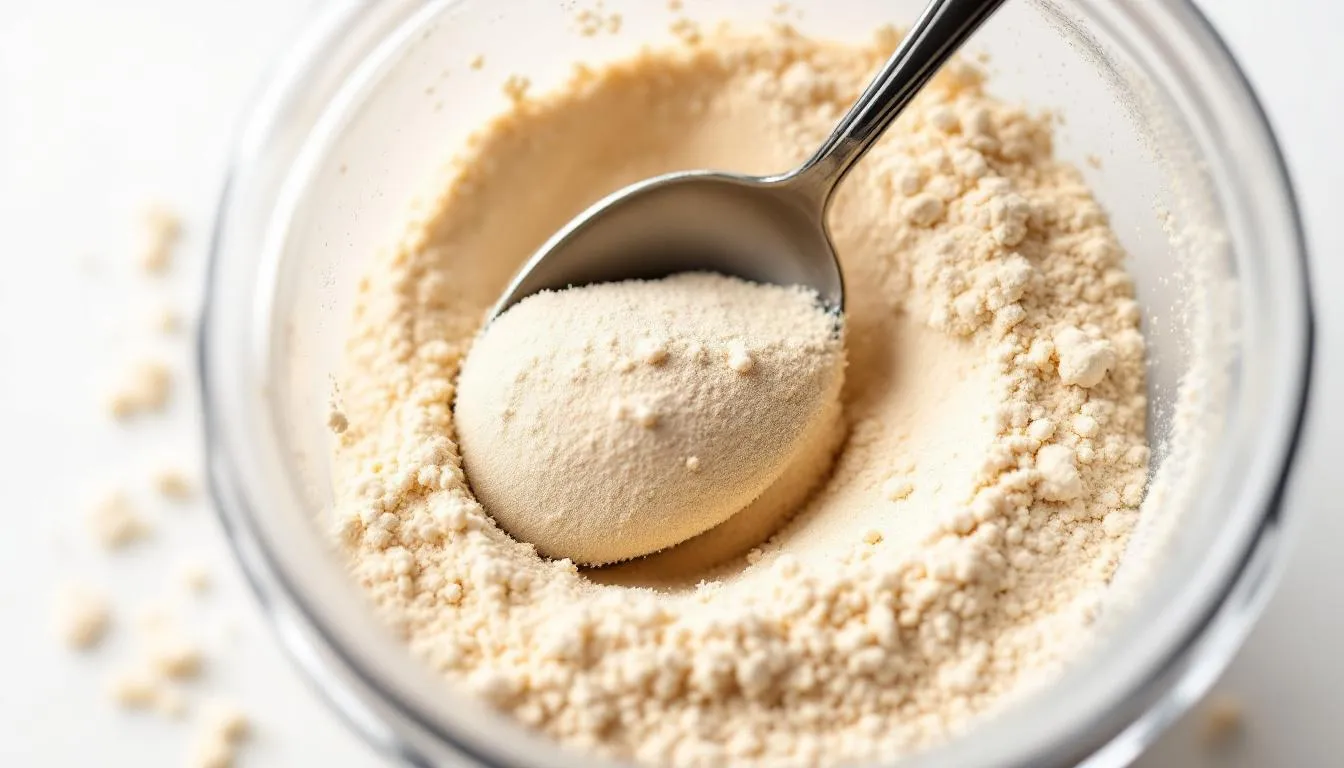
Incorporating Whey Protein into a Balanced Diet
For those aiming to lose weight, incorporating whey protein into a balanced diet is essential. Nutritionist Dr. Emily Morrison advises, “Whey protein should complement a diet that is rich in fruits, vegetables, whole grains, and healthy fats.” This ensures the benefits of protein are supported by a broad range of essential nutrients. Rather than treating it as a quick fix, whey should be part of a holistic eating pattern. “It can be easily added to smoothies, oatmeal, or even baked goods to boost the protein content of everyday meals,” Dr. Morrison adds. Its versatility makes it easy to include in a variety of dishes, supporting healthier, more sustainable eating habits.
Synergistic Foods and Nutrients for Weight Loss
Combining whey protein with other nutrient-dense foods can enhance weight loss efforts. High-fibre options like fruits and vegetables boost fullness and support digestion. Dr. Morrison advises, “Pairing whey protein with a source of healthy fats, like avocado or nuts, can further promote satiety and nutrient absorption.” This synergy between protein, fibre, and healthy fats creates a balanced, satisfying meal that aligns with weight loss goals.
Case Studies and Practical Examples
Real-world examples highlight the effectiveness of whey protein in weight loss plans. In one case study, a 35-year-old woman replaced her morning bagel with a protein shake blended with berries and almond milk. This simple change improved satiety, reduced daily calorie intake, and over six months, led to noticeable weight loss, increased energy, and fewer cravings.
How to Drink Whey Protein for Weight Loss?
The method of consuming whey protein can impact its effectiveness in a weight loss regimen. Dr. Morrison advises, “For weight loss, mix whey protein with water or a low-calorie liquid like almond milk rather than high-calorie alternatives.” This strategy ensures the protein intake does not inadvertently lead to excessive calorie consumption. Additionally, avoid consuming too much protein in a single serving, as this can cause digestive discomfort, and it is important to stay within recommended guidelines.
Guidelines on Preparation and Consumption
When preparing whey protein, a few simple guidelines can help maximise its benefits. Dr. Emily Morrison advises, “Avoid adding high-sugar ingredients to whey protein shakes; opt for natural sweetness from fruits or a small amount of honey.” This helps maintain the shake’s nutritional value while keeping calorie content in check.
Moderation is key when using protein supplements. Over-reliance on them at the expense of other nutrients can hinder overall health goals. As Dr. Morrison notes, “While whey protein is a valuable tool for weight loss, it should be part of a varied and well-rounded diet to ensure all nutritional needs are met.”
These recommendations are intended for healthy adults. Anyone with medical conditions or specific dietary needs should consult a healthcare professional before adjusting their protein intake. When used appropriately—alongside whole foods rich in fibre, healthy fats, and complex carbohydrates—high-quality protein supplements can effectively support weight loss efforts. Real-world case studies demonstrate their practical value, especially when combined with thoughtful preparation and a balanced nutritional plan. This approach reinforces the article’s core message: using protein strategically within a holistic weight management framework.
Whey Protein and Specific Weight Loss Goals
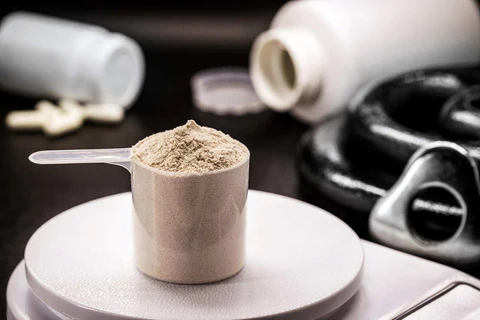
Should I Take Whey Protein While Trying to Lose Belly Fat?
The idea that certain foods or supplements can target specific fat areas—like the belly—is a common point of interest. Dr. Laura Green, a specialist in nutritional science, explains, “While it’s not possible to target fat loss in specific areas through diet alone, whey protein can be a valuable component in an overall fat loss strategy, including reducing belly fat.”
In addition to supporting muscle preservation and satiety, this protein may also help improve insulin resistance, a factor closely linked to abdominal fat. By aiding blood sugar control and supporting heart health, it contributes to better metabolic function. While weight loss is a systemic process, strategic dietary choices can influence how and where fat is reduced, making whey a useful tool in a well-rounded approach to reducing central fat.
Evaluating the Role of Whey Protein in Targeted Fat Loss
Whey protein’s role in general weight loss is well-established, and its impact on belly fat is linked to several important factors. First, its ability to promote satiety can lead to reduced calorie intake, an essential component of fat loss. “By curbing appetite and reducing the likelihood of overeating, it can contribute to a caloric deficit necessary for fat reduction,” explains Dr. Laura Green.
Another key benefit is its support for muscle maintenance during weight loss. “Maintaining muscle mass is crucial, as it helps keep the metabolic rate high,” Dr. Green adds. Preserving or increasing lean muscle tissue not only improves body composition but also boosts the body’s ability to burn calories efficiently, which may enhance fat loss, including in the abdominal area.
There’s also evidence to suggest an influence on fat distribution. A study published in the Journal of Nutrition found that individuals who combined a protein-rich supplement with resistance training experienced a more significant reduction in abdominal fat compared to those who didn’t include it in their routine. This suggests that, when paired with regular exercise, high-quality protein may contribute to more targeted fat loss results.
Importantly, success depends on the broader dietary and lifestyle context. Dr. Green advises, “For optimal results, protein supplementation should be part of a healthy diet rich in whole foods and combined with consistent physical activity.”
While it’s not possible to spot-reduce fat through diet alone, incorporating complete proteins into a structured weight loss plan can promote systemic fat loss, support muscle retention, and potentially influence where fat is lost first. This aligns with the article’s central theme: using evidence-based strategies to maximise the role of nutrition in targeted weight loss goals.
Myths and Misconceptions
The world of nutrition—especially when it comes to weight loss—is full of myths and misconceptions, many of which centre around protein and whey protein. This section aims to clear up the confusion by separating fact from fiction, aligning with our core theme: understanding how whey protein can support effective and sustainable weight loss.
Debunking Common Myths
Myth 1: More Protein Equals Faster Weight Loss
It’s a widespread belief that significantly increasing protein intake will speed up fat loss. However, Dr. Samuel Hayes, a dietitian and weight loss expert, clarifies, “While protein is essential for weight loss, there is a misconception that drastically increasing protein intake will accelerate results.” In reality, balance and moderation are key. Excessive amounts can lead to unnecessary calories and may not deliver the expected outcomes.
Myth 2: Protein Only Comes from Meat
Many people assume that high-quality protein can only be obtained from meat. A variety of plant-based foods—such as lentils, chickpeas, and quinoa—as well as dairy-based options like whey, provide excellent protein content. “Diversity in protein sources is crucial for a balanced diet and can aid in weight loss,” says Dr. Hayes.
Myth 3: Protein Supplements Are Only for Bodybuilders
Protein powders, especially whey, are often mistakenly seen as tools just for bodybuilders. In truth, they can benefit a much broader group. “Whey protein can benefit anyone looking to manage their weight, as it aids in muscle maintenance and satiety,” Dr. Hayes explains. Used correctly, it’s a versatile tool for anyone pursuing better health and fitness.
Clarifying Misconceptions about Whey Protein and Health
Misconception 1: Protein Supplements Are Unnatural or Harmful
A common misconception is that whey-based supplements are artificial or unsafe. In reality, they are naturally derived from milk and undergo minimal processing. Nutritionist Dr. Ellen Wright notes, “Whey protein is a safe and natural supplement when used appropriately as part of a balanced diet.” While generally well-tolerated, some individuals may experience side effects—such as acne—due to hormonal responses like increased IGF-1, which can raise oil production in the skin.
Misconception 2: Protein Supplements Damage the Kidneys
Concerns about kidney health are frequently raised, but they’re often misunderstood. “In healthy individuals, moderate intake of high-quality protein is not linked to kidney damage,” explains Dr. Wright. However, those with pre-existing kidney conditions should consult a healthcare professional before increasing their protein consumption through supplements.
Misconception 3: Protein Supplements Cause Weight Gain
A common myth is that using protein powders automatically results in weight gain. Dr. Wright clarifies, “When included in a calorie-controlled diet, these supplements can actually support weight loss. It’s total calorie intake—not protein itself—that determines weight changes.” When used appropriately, they can help manage appetite, preserve lean muscle, and contribute to fat loss.
Conclusion
Post-workout, protein intake plays a key role in muscle recovery and takes advantage of the body’s heightened metabolic rate. Including a serving in the morning can help kickstart metabolism and keep you feeling fuller for longer, while evening consumption may aid muscle repair and reduce late-night cravings. When adding it to your routine, balance is essential—it should complement a nutrient-rich diet, not replace it. Pairing protein powder with foods high in fibre and healthy fats can further support weight loss by improving satiety and stabilising blood sugar levels. Real-world case studies have shown how effective it can be when used correctly as part of a structured plan. Importantly, common myths need to be addressed: it’s not just for athletes, and it doesn’t automatically cause weight gain or harm kidney function in healthy individuals. When used appropriately, it can be a safe and powerful tool for reaching your health and weight loss goals.
In terms of final recommendations:
Timing: For the best results, timing your intake can make a significant difference. Consuming it about 30 minutes before exercise can support energy levels and help preserve muscle during training. Taking it within 30 minutes after a workout promotes muscle recovery and repair. For general weight loss, having a serving in the morning can curb appetite and reduce total calorie intake throughout the day. Evening consumption may support overnight muscle recovery and help maintain a healthy metabolism while you sleep.
Balance and Moderation: Include high-quality protein supplements as part of a varied diet that also features other protein sources, whole grains, fruits, vegetables, and healthy fats. This balanced approach ensures nutritional diversity and supports long-term health and weight management.
Consultation: Individuals with specific health conditions or dietary requirements should always consult a healthcare professional before introducing protein supplements into their routine. With expert guidance and a balanced, nutrient-rich diet, high-quality options like whey can be effectively integrated into a weight loss plan. It’s essential to remember that supplements are meant to complement—not replace—whole foods and other essential nutrients. When used as part of a well-rounded approach to nutrition and lifestyle, this type of protein can serve as a valuable tool in achieving and sustaining a healthy weight.







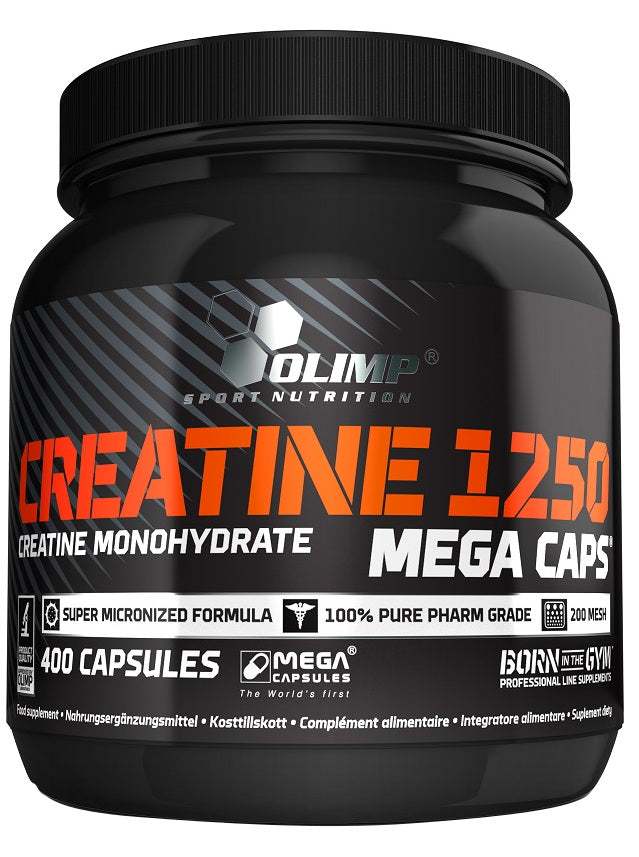


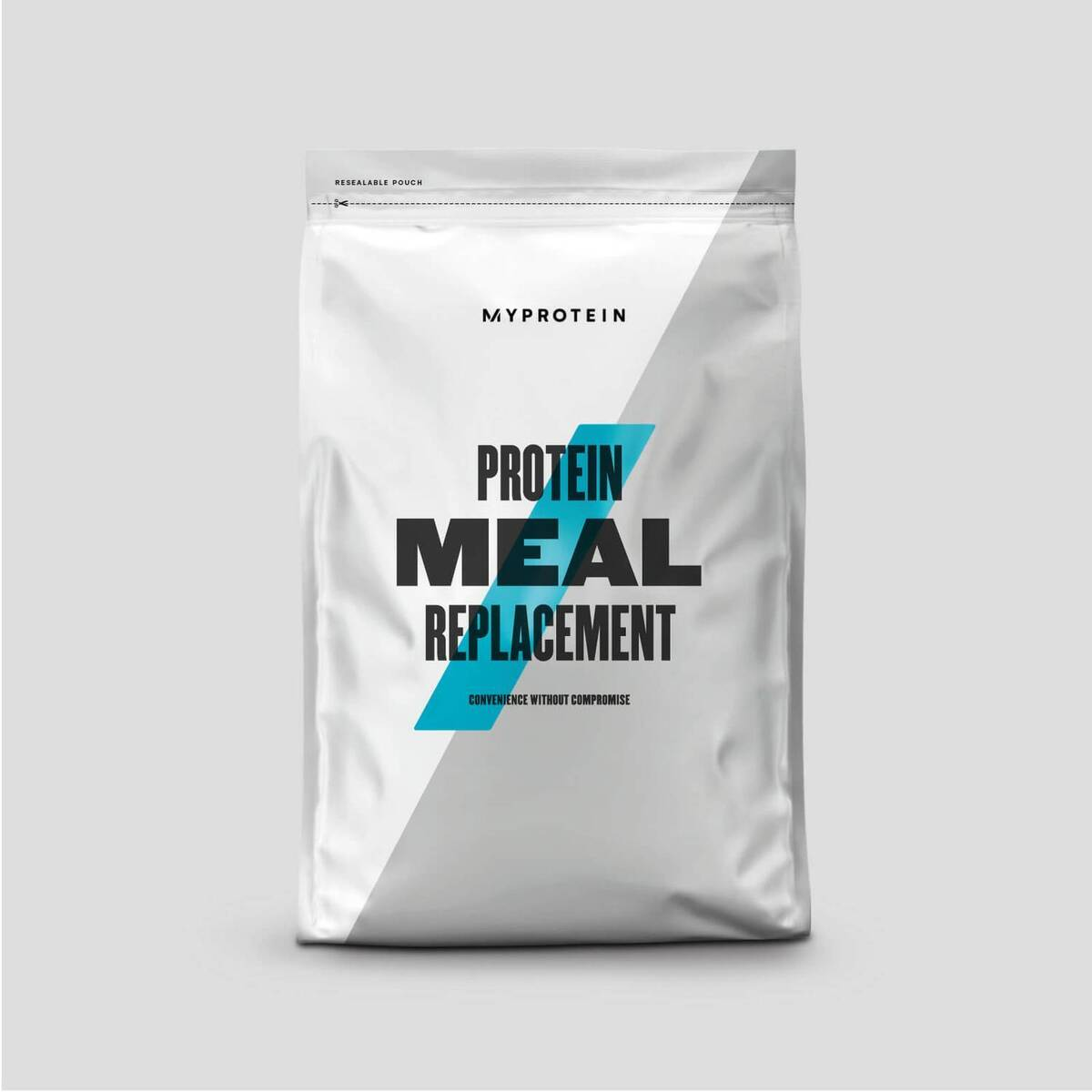
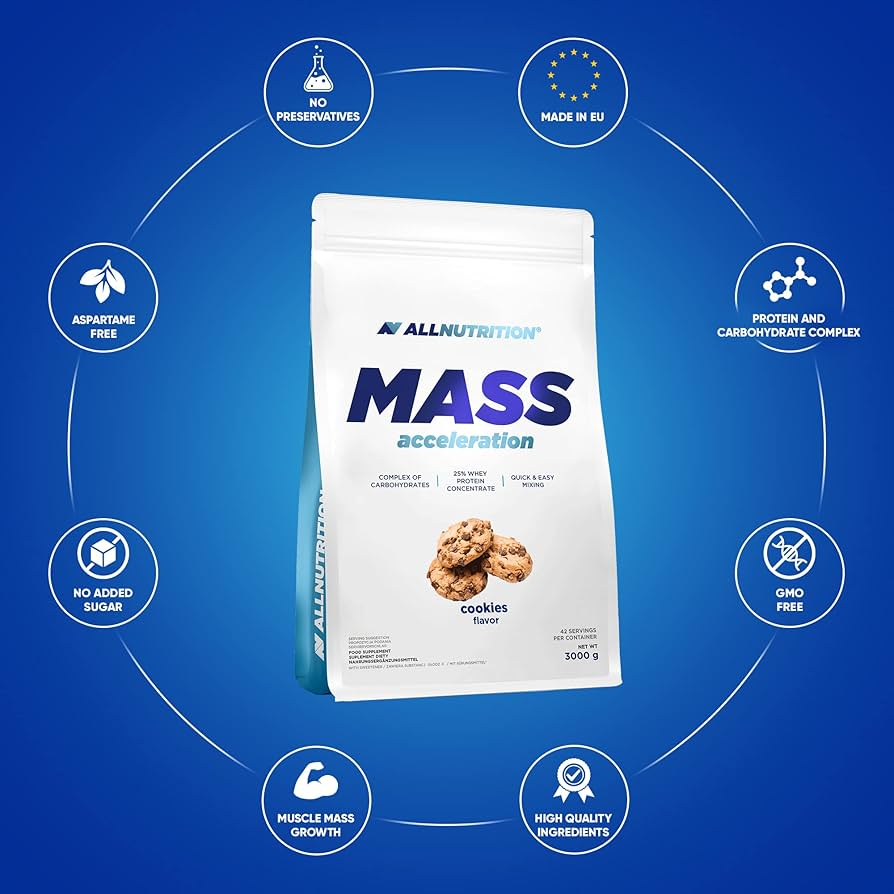





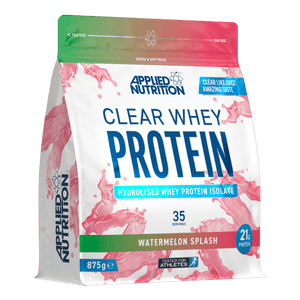





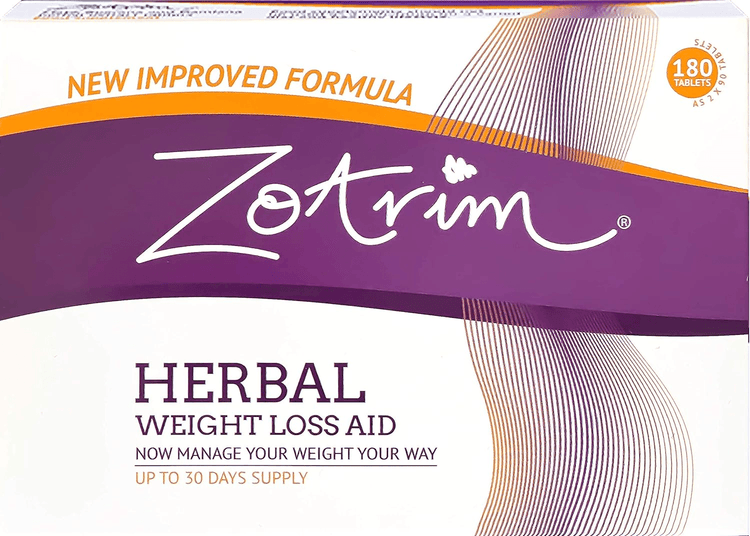


 Rated Excellent by 26,523+ Reviews
Rated Excellent by 26,523+ Reviews